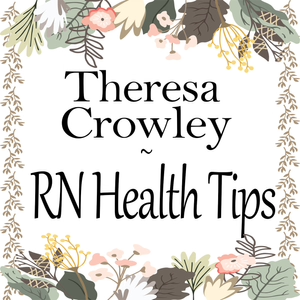
066. The Alzheimer's Association's tips for visiting family members with dementia
12/10/21 • 26 min
In 2021, 6 million Americans have received an Alzheimer’s diagnosis, with 400,000 individuals diagnosed in Texas alone.* Nearly everyone knows someone with dementia or Alzheimer’s, but there are still many questions how to handle it - especially around the holidays.
Senior Services Expert Lori Williams welcomes Tanesha Tyler-Carr, the program services coordinator from the Alzheimer’s Association Dallas and Northeast Chapter, to do a 3-part series on Alzheimer’s. She shares statistics and common misconceptions about the disease, as well as important tips for the holidays.
You’ll learn how to:
Prepare yourself to visit a loved one with dementia
Set boundaries and expectations with loved ones
Include them in the festivities while attending their needs
If it's been a long time since you've connected with your loved one and you're unsure how to act or you're unsure how to help family members prepare, this will provide great guidelines for you.
Takeaways from this episode:
Caregivers should prepare family and let them know what to expect, so the holidays are enjoyable for everyone.
You may need to modify how you interact with your loved one. Their diagnosis may change how they express themselves and relate to others.
Prepare a place away from the main action where your loved one can enjoy company on their own terms without becoming overstimulated.
Find a way to let your loved one be part of the preparations in a way that fits their desires and abilities.
Alzheimer’s is a brain disease and not only impacts memory and communication, but also their senses. Keep this in mind while preparing their plate of food.
Resources:
For more information on Alzheimer’s and preparing for the holidays:
Call the 24/7 helpline at 800-272-3900
Going home for the holidays? Keep an eye on these red flags:
*According to alz.org/facts
To suggest a topic, be a guest or to support the podcast, please email [email protected]
For more senior resources and to sign up to the newsletter, please visit:
https://www.facebook.com/LoriWilliamsSeniorServices/
https://www.instagram.com/theloriwilliams/
https://www.linkedin.com/in/theloriwilliams/
https://loriwilliams-seniorservices.com/aging-in-style-podcast/
Topics discussed:
Alzheimer’s
Dementia
Holiday
Family dynamics with dementia
Sensory overload
Stigma of dementia
Alzheimer’s statistics
In 2021, 6 million Americans have received an Alzheimer’s diagnosis, with 400,000 individuals diagnosed in Texas alone.* Nearly everyone knows someone with dementia or Alzheimer’s, but there are still many questions how to handle it - especially around the holidays.
Senior Services Expert Lori Williams welcomes Tanesha Tyler-Carr, the program services coordinator from the Alzheimer’s Association Dallas and Northeast Chapter, to do a 3-part series on Alzheimer’s. She shares statistics and common misconceptions about the disease, as well as important tips for the holidays.
You’ll learn how to:
Prepare yourself to visit a loved one with dementia
Set boundaries and expectations with loved ones
Include them in the festivities while attending their needs
If it's been a long time since you've connected with your loved one and you're unsure how to act or you're unsure how to help family members prepare, this will provide great guidelines for you.
Takeaways from this episode:
Caregivers should prepare family and let them know what to expect, so the holidays are enjoyable for everyone.
You may need to modify how you interact with your loved one. Their diagnosis may change how they express themselves and relate to others.
Prepare a place away from the main action where your loved one can enjoy company on their own terms without becoming overstimulated.
Find a way to let your loved one be part of the preparations in a way that fits their desires and abilities.
Alzheimer’s is a brain disease and not only impacts memory and communication, but also their senses. Keep this in mind while preparing their plate of food.
Resources:
For more information on Alzheimer’s and preparing for the holidays:
Call the 24/7 helpline at 800-272-3900
Going home for the holidays? Keep an eye on these red flags:
*According to alz.org/facts
To suggest a topic, be a guest or to support the podcast, please email [email protected]
For more senior resources and to sign up to the newsletter, please visit:
https://www.facebook.com/LoriWilliamsSeniorServices/
https://www.instagram.com/theloriwilliams/
https://www.linkedin.com/in/theloriwilliams/
https://loriwilliams-seniorservices.com/aging-in-style-podcast/
Topics discussed:
Alzheimer’s
Dementia
Holiday
Family dynamics with dementia
Sensory overload
Stigma of dementia
Alzheimer’s statistics
Previous Episode

065. Everything you need to know about Meals on Wheels
Meals on Wheels has been more important than ever the past couple years as seniors have isolated during the pandemic. But what is Meals on Wheels, and how does it work? And how do you or your loved ones qualify?
Michelle McMahon is the executive director of Meals on Wheels in Denton County, Texas, and she’s joined by Senior Nutrition Program Manager Kristine Herrera to discuss all the ins and outs of Meals on Wheels.
You’ll learn:
-How it’s funded
How seniors qualify
How often meals are delivered
What’s included
How the volunteer program works
And more.
It’s a labor of love that does more than deliver meals. Thanks to generous donations and grants, seniors not only receive a nutritious, warm meal – they receive friendly check-ins from members of the community. This provides relief to family members of seniors who may not get to see their loved ones as often as they’d like.
Topics discussed:
Meals on Wheels
Congregate meals
Funding / donating to Meals on Wheels
Volunteer work
Senior community
Senior socialization
Takeaways from this episode:
Meals on Wheels is free for seniors and mainly funded through the federal government’s Older Americans Act. But to serve more people, they rely on supplemented donations and grants.
Seniors qualify for delivery when they’re over age 60, live alone, and are homebound. Social workers also do a candidate assessment when they receive a senior referral.
Senior living facilities sometimes host congregate Meals on Wheels, which offers an enriching experience providing socialization to a population that’s often lonely.
Meals and Wheels gives peace of mind to distant family members because sometimes the delivery is the only contact seniors have.
Senior Paws is a donation-based program that partners with Meals on Wheels of Denton County to deliver dog and cat food to home bound seniors with pets.
To find out more about volunteering with Meals on Wheels in Denton County, call:
940-382-2224
Visit the website to learn more or donate:
Senior Paws:
http://mowdc.org/senior-paws-for-pets/
Episode 14: Finding purpose as we age:
To suggest a topic, be a guest or to support the podcast please email [email protected]
For more senior resources and to sign up to the newsletter please visit:
https://www.facebook.com/LoriWilliamsSeniorServices/
https://www.instagram.com/theloriwilliams/
https://www.linkedin.com/in/theloriwilliams/
https://loriwilliams-seniorservices.com/aging-in-style-podcast/
Next Episode

067. Dementia behind the wheel, Alzheimer's Association tips to keep everyone safe
Your loved one is taking longer and longer to run errands, their car is scraped and dented, and you suspect dementia and Alzheimer’s. Even if you’re unafraid of confrontation, it can be nerve-racking to have the conversation with your loved one that it’s time to take their car keys. It’s critical to do it not just for your loved one’s safety, but for the safety of everyone else on the road.
Tanesha Tyler-Carr is no stranger to this situation as a care consultant with the Alzheimer’s Association Dallas and Northeast Texas Chapter. Senior Services Expert Lori Williams welcomes her back to discuss tips and resources for this scenario in the continuation of the Alzheimer’s series:
· Why it’s important to have this conversation
· Red flags to keep in mind
· How to prepare for the conversation about driving
· And more
Takeaways from this episode:
70% of people diagnosed with Alzheimer's or another type of dementia will wander at some point in time, meaning getting lost or stepping away from their environment.
The Alzheimer’s Association website offers videos about having the conversation about taking the keys, how to plan, signs of unsafe driving, and what to do if the conversation is going well (or not going well).
Get everyone in your family on the same page about the plan of action.
If your loved one isn’t receptive to handing over the keys, try using an authority figure like a doctor, the police or even the DMV, which can offer a driving test to gauge their abilities and revoke their license if needed.
Resources:
For more information on Alzheimer’s and driving:
Visit alz.org/driving
Call the helpline at 800-272-3900
Dangerous driving? It may be time to give the time to give out the keys:
To suggest a topic, be a guest or to support the podcast please email [email protected]
For more senior resources and to sign up to the newsletter please visit:
https://www.facebook.com/LoriWilliamsSeniorServices/
https://www.instagram.com/theloriwilliams/
https://www.linkedin.com/in/theloriwilliams/
https://loriwilliams-seniorservices.com/aging-in-style-podcast/
Topics discussed:
Alzheimer's and dementia
Conversation tips
Dementia and driving
Taking the keys
Silver alerts
Car safety
Alzheimer's Association
If you like this episode you’ll love
Episode Comments
Generate a badge
Get a badge for your website that links back to this episode
<a href="https://goodpods.com/podcasts/aging-in-style-with-lori-williams-239526/066-the-alzheimers-associations-tips-for-visiting-family-members-with-26694658"> <img src="https://storage.googleapis.com/goodpods-images-bucket/badges/generic-badge-1.svg" alt="listen to 066. the alzheimer's association's tips for visiting family members with dementia on goodpods" style="width: 225px" /> </a>
Copy




